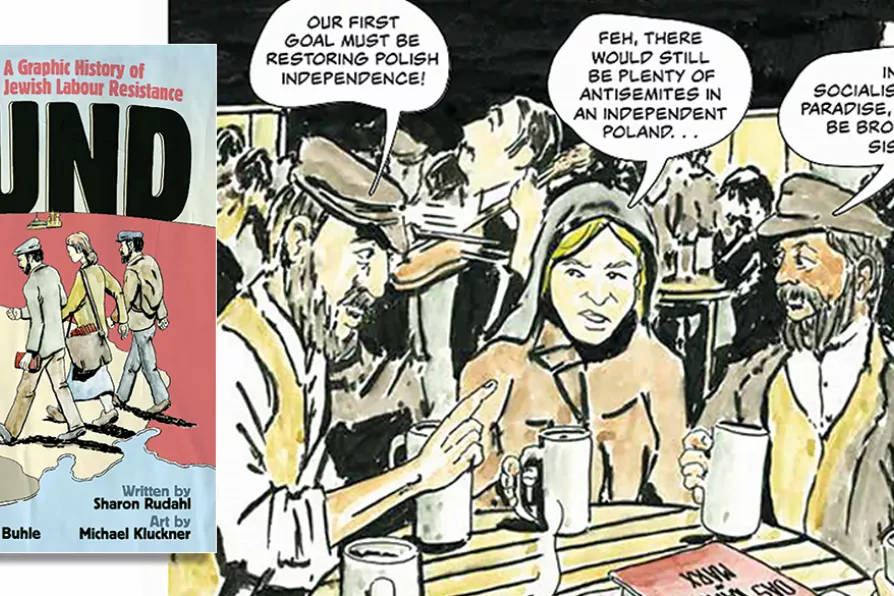Releases from Rahsaan Roland Kirk, Maggie Nicols/Robert Mitchell/Alya Al Sultani, and Gordon Beck Trio and Quintet

 IN THE BEGINNING: The General Union of Jewish Workers in Lithuania, Poland and Russia - the Bund, was founded in Vilnius, Lithuania, in October 1897 by a group of Jews who were profoundly influenced by Marxism - their goal was to attract East European Jews to the emergent Russian revolutionary movement
[Sharon Rudahl and Michael Kluckner]
IN THE BEGINNING: The General Union of Jewish Workers in Lithuania, Poland and Russia - the Bund, was founded in Vilnius, Lithuania, in October 1897 by a group of Jews who were profoundly influenced by Marxism - their goal was to attract East European Jews to the emergent Russian revolutionary movement
[Sharon Rudahl and Michael Kluckner]
The Bund
Sharon Rudahl and Michael Kluckner
Between the Lines, £22.50
THE late Scottish Marxist Neil Davidson described the political division in Jewish Europe as one between two different responses to the brutality of anti-semitism.
One was to see that the oppression and persecution of Jews necessitated a new society in a Jewish majority state: this was zionism and ended in the catastrophe we see today. The other response was to view the oppression and persecution of Jews as inherent and brutal aspects of capitalist oppression that necessitated a new society for everyone: a society free from capitalism, and from the state. This was socialism, communism, Bundism, and its many lives and legacies continue to exist today, though they are often erased or suppressed.
One such legacy is the beautiful new graphic novel The Bund by Sharon Rudahl and Michael Kluckner.

In search of political understanding, MATTHEW HAWKINS welcomes a critique of anti-semitism as codified by the Israeli state

NICK MATTHEWS previews a landmark book launch taking place in Leicester next weekend












